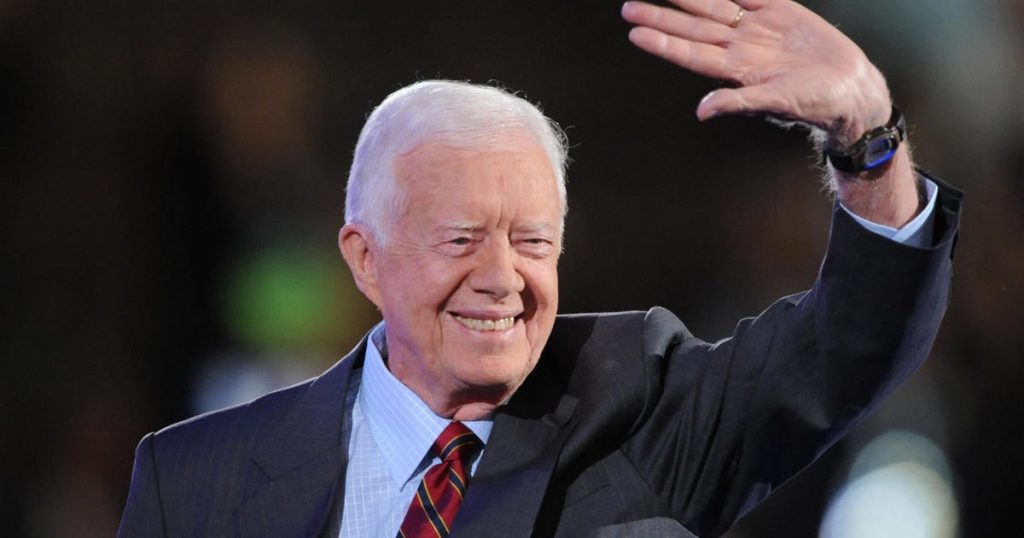Jimmy Carter, the 39th president of the United States, passed away at the age of 100 at his home in Plains, Georgia. He is remembered for his distinguished second act in humanitarian work following his time in office, and he was the oldest former president in U.S. history at the time of his death. Carter’s son, Chip, described him as a hero to all who believed in peace, human rights, and unselfish love. The family thanked those honoring Carter’s memory by continuing to live out these beliefs. Public observances were planned in Atlanta and Washington, D.C., followed by a private interment in Plains, Georgia. President Biden declared a national day of mourning in Carter’s honor and ordered flags at federal facilities to be flown at half-staff for 30 days.
Throughout his life, Carter championed peace and humanitarian causes, leaving a legacy of service. He achieved significant milestones such as brokering the Camp David Accords in 1978 and being awarded the Nobel Peace Prize in 2002 for his efforts in advancing international peace, democracy, and human rights. Despite facing challenges during his presidency, including the U.S. energy shortage and the Iran hostage crisis, Carter remained committed to his values and worked tirelessly in his roles at Habitat for Humanity and the Carter Center. He continued to teach Sunday school and engage in public service well into his 90s.
Born in Plains, Georgia, Carter’s humble beginnings as the son of a peanut farmer shaped his values and faith. After graduating from the U.S. Naval Academy and serving in the Navy, he returned to Georgia to run the family peanut farm. His entry into politics led to his election as governor of Georgia in 1970, and in 1976, he became the 39th president of the United States after defeating President Gerald Ford. Carter’s presidency was marked by both accomplishments and challenges, including establishing the Departments of Energy and Education, formalizing diplomatic relations with China, and negotiating the Camp David Accords.
Despite facing criticism for his outsider status in Washington and struggling to form relationships with Congress, Carter’s presidency saw significant achievements such as the peace treaty between Israel and Egypt. The Iran hostage crisis dominated his reelection campaign, and he faced economic challenges. However, he successfully negotiated the release of the hostages shortly after leaving office. In his post-presidential years, Carter and his wife, Rosalynn, founded The Carter Center in Atlanta to further their mission of promoting peace and global health. They also dedicated their efforts to Habitat for Humanity and authored numerous books.
Carter’s commitment to peace and justice extended beyond his presidency, as he continued to engage in humanitarian work and advocacy. His health setbacks, including a cancer diagnosis in 2015 and various falls and hospitalizations, did not deter him from his service and teaching activities. The passing of Rosalynn in November 2023 marked the end of the longest presidential marriage in American history, but the legacy of their partnership and contributions to society endures. Jimmy Carter leaves behind a family of four children, grandchildren, and great-grandchildren, as well as a lasting impact on the role of former presidents in public service. His dedication to promoting peace and pursuing justice serves as an inspiration for future generations.















